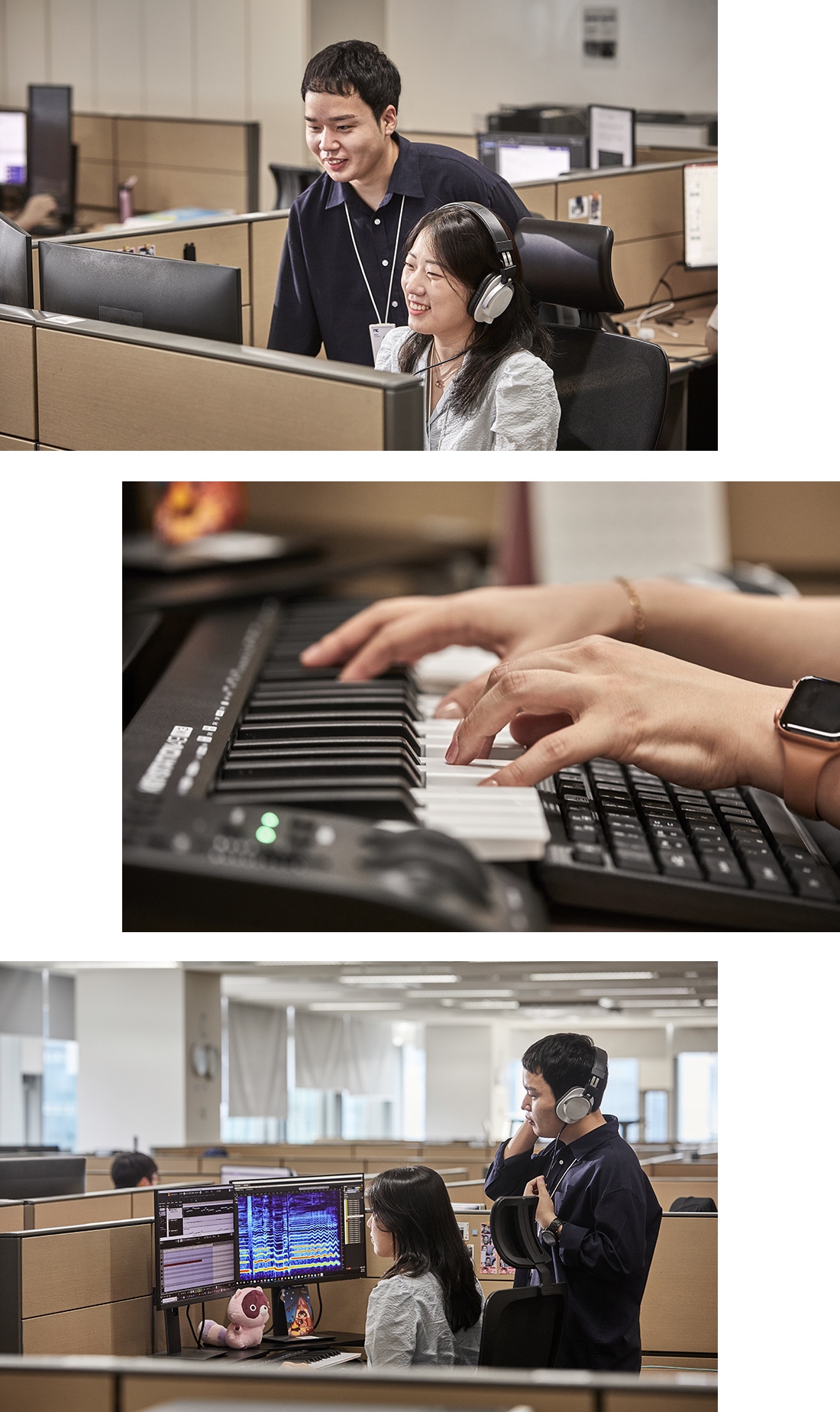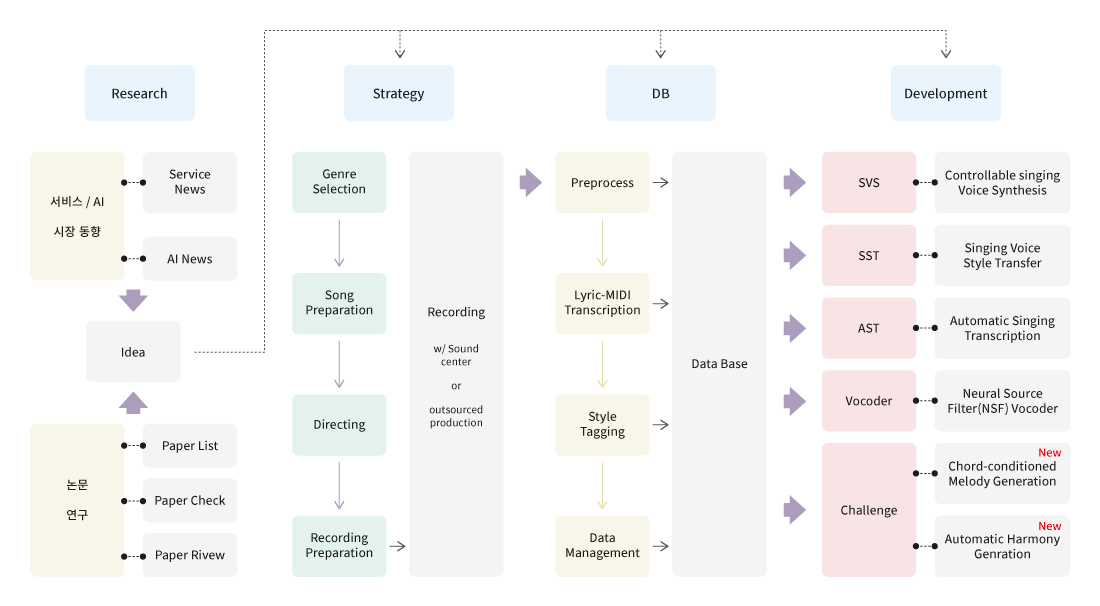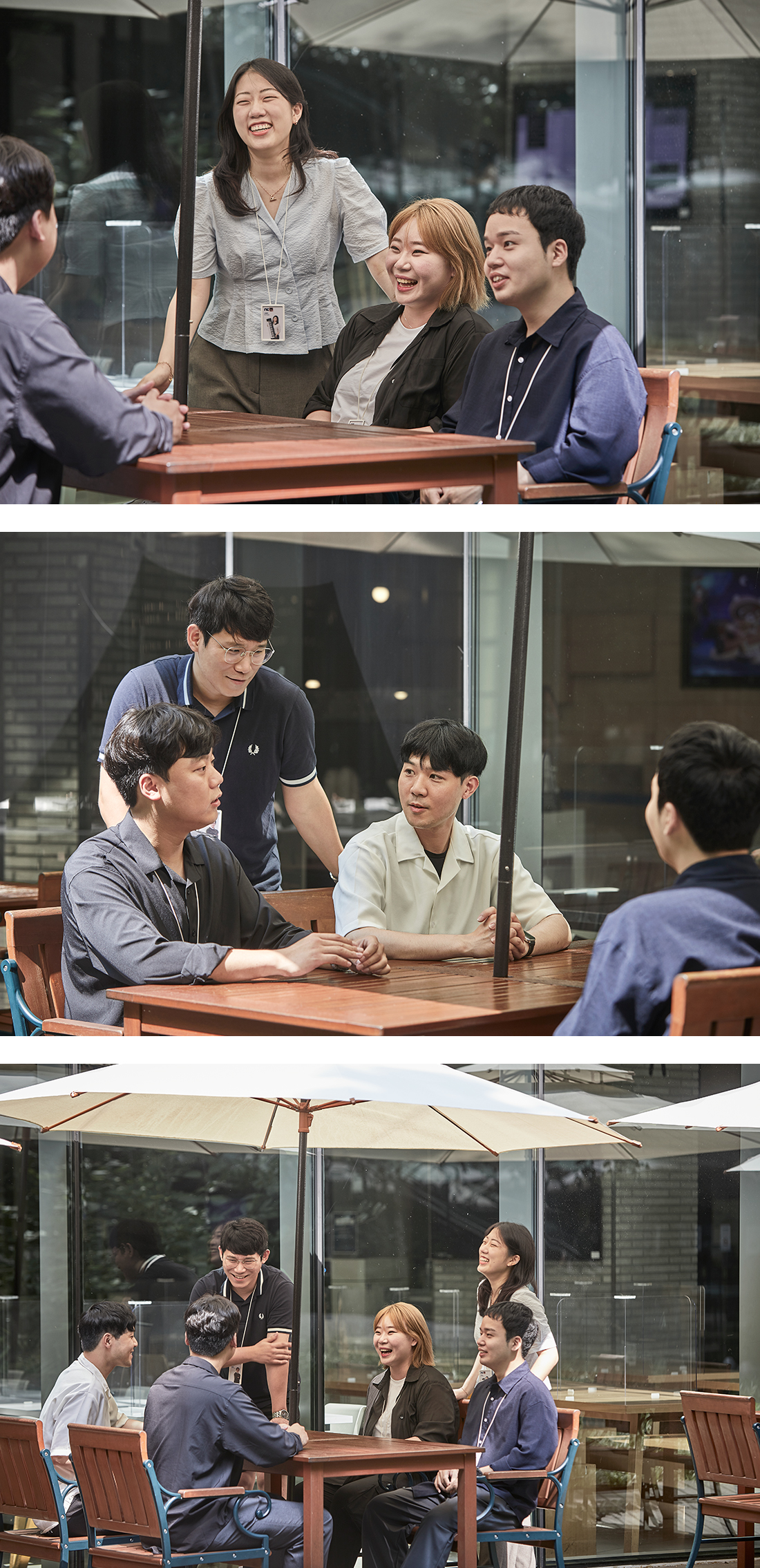Min-su I think there is an entry barrier for ordinary people to start doing music. For instance, most people believe that they should have various musical knowledge and technique to be a good singer. Therefore, I believe that in case the singing voice synthesis technology develops further, we may lower down the entry barrier, because people will be able to create music with the help of technology even if they do not know how to vocalize or lack musical knowledge. In case a new type of music that breaks the existing boundaries is created, I think it may prompt the needs for new technologies.
Hyun-mu Some people may have fears towards technological development, but I think the number of things that we could newly try would also increase. Producers may create a teen band that they want through synthesizing various types of singing voices and may generate profits through creating secondary content. I believe that in case all detailed elements of music are considered as a single data, the number of things that could be expressed would increase even further, and people would be able to feel a new type of joy. For instance, in case a user is very good at vibrato*, they may extract the part separately and sell them.
*Vibrato: A technique to vibrate either the human voice or the sound of musical instrument in music
Kyung-hoon We may think about a service to introduce a digital human voice so that it could communicate with people and sing to them. For instance, they may sing more passionately in front of the people that react passionately and sing comforting songs to those that are depressed or going through a heartbreaking break-up. Ultimately, we aim to create a singer-songwriter that may create and sing songs of various genres through combining music and AI. Music AI Team’s goal is to create AI voices and music that could sing with much emotion like an actual human being and move people’s heart through creating a music that used not to exist before.
 Facebook
Facebook  Twitter
Twitter  Reddit
Reddit  LinkedIn
LinkedIn  Email
Email  Copy URL
Copy URL 








